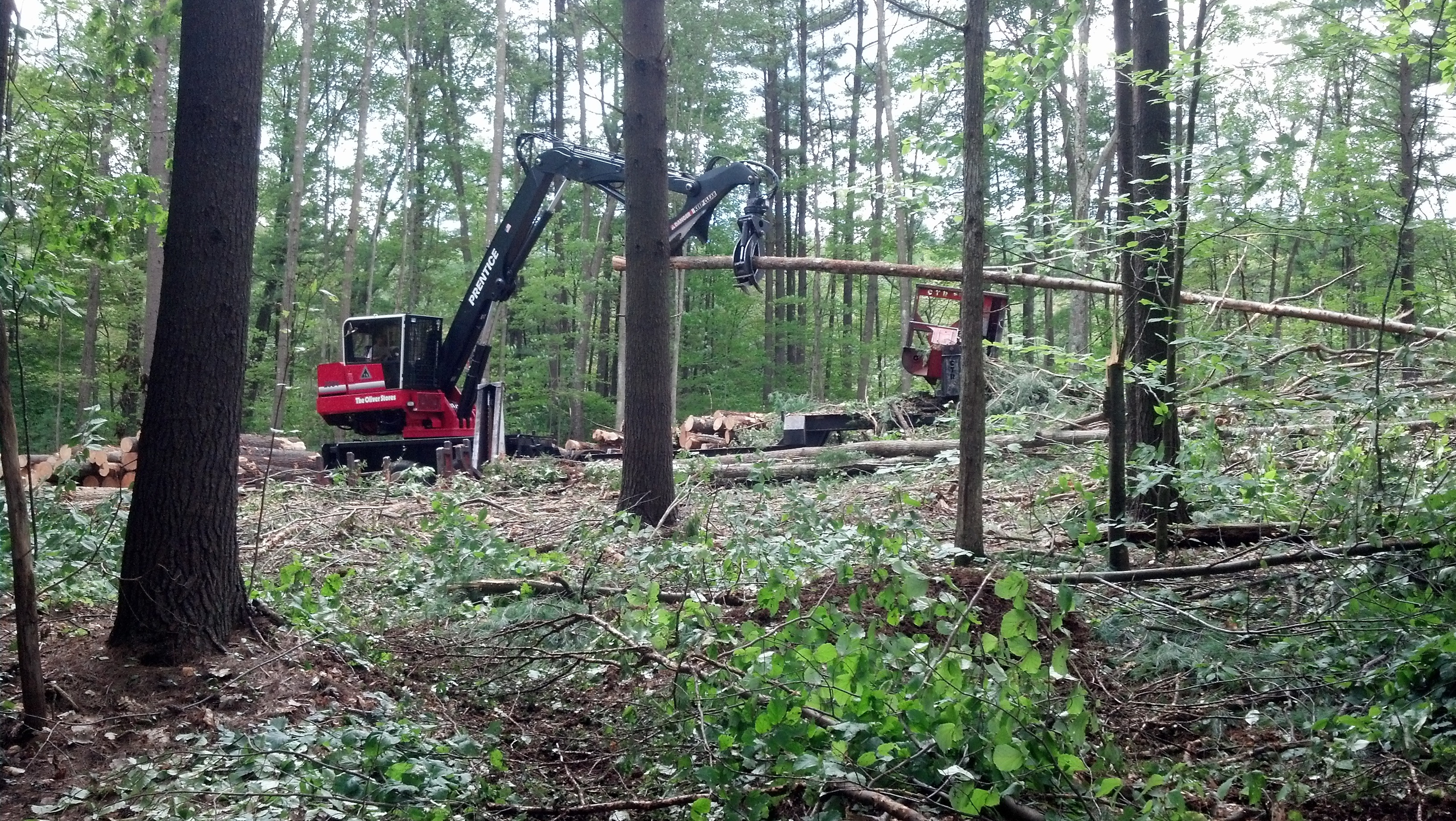
The following was recently published by our friends at Forest Resources Association, and was authored by Eric Kingsley, FRA Northeastern Region Consultant.
A few summers ago, I was on a whitewater kayaking trip with my kids in the Maine North Woods. For those of you unfamiliar with this amazing landscape, it is millions of acres of privately held commercial timberland (with some modest public inholdings), with very few residents and open to the public for recreation – camping (in designated sites), hunting, fishing, hiking, canoeing, kayaking and more. This area is connected by a private road network where logging trucks have the right of way, and it is understood that you’re visiting a working forest.
We were camped on a lake and spent our days “running laps” down part of the Penobscot River. The take-out (where the section of the river we were running stopped) was at a campground, and over the course of a couple of days, my kids (in high school at the time) befriended some younger kids that were camping there for the week. When one person (usually me, for some reason) has to jog back to the put-in to get the truck, there is plenty of time for kids of any age to strike up a campsite friendship – throwing a football, skipping rocks across the river, looking at bugs, catching frogs.
On the final run of our 3-day adventure, the “campsite kids’” dad offered to shuttle me to the put-in in his truck, an offer I happily accepted. His kids hiked up a riverside trail and cheered as we ran some of the rapids. We shared a watermelon at the takeout.
I then noticed that the family had a (large) canoe, and asked what they were using it for. Found out they were hoping to run the next (non-whitewater) section of the river – about 12 miles – that afternoon. I of course offered to reciprocate the shuttle run, and in a few minutes, camp dad and I were off. We dropped his truck and trailer at the take-out, he hopped in my truck, and we were on our way back to his campsite (and our kids). While it wasn’t a long ride in miles, our trip back together would be about a half-hour.
In addition to talking about whatever (two guys in a truck chat), I started telling him about the working forest we were in – how landowners practiced sustainable management, how revenue from timber harvesting is what kept the land in private hands and well managed, how professional loggers invest in training and equipment to operate safely and efficiently. Camp Dad lets me go on for a while, asking a few questions here and there, and then tells me… he’s a logger. He’s from another region of the country (which I knew – I had just followed his truck for miles) and seeing new things, but he’s a logger.
As much as he knew about forest management and logging, he was intrigued by the size and scope of the North Maine Woods. I was able to connect a logger working in the general area for him to visit the next day, which I understand went well.
He also told me that he usually doesn’t speak to strangers about what he does for a living. It’s not that he’s embarrassed – quite the opposite. He doesn’t like getting into disagreements with folks that know little about what our industry does. In his words “it’s not very fulfilling when the other guy brings fists to a gunfight”. When he learned I lived in Portland, Maine, he assumed I didn’t know much about forestry and would have a negative reaction to him being a logger (wrong, but I can understand how people make this assumption).
I encourage him – and I share this story to encourage you – to talk to folks about the forest industry when the opportunity arises. No, you don’t need to be an evangelist for the industry, but when someone says, “I’m a doctor,” a response of “I buy wood for a pulp mill” is an appropriate (and socially acceptable) response. In deference to my friend Camp Dad, don’t be argumentative and get in fights, but use your vast knowledge of the industry to enlighten folks. We are all ambassadors for the forest industry, and sharing our knowledge when the opportunity arrives helps us tell others about the great work we do, and how it benefits all of society.
Eric Kingsley is Vice President of Innovative Natural Resource Solutions, LLC. With a diverse professional background, Mr. Kingsley has been the Executive Director for a 1500 member forestry trade association, has represented organizations in both lobbying, legislative and development capacities, and has supported state and federal agencies with disaster relief funding for the forest industry.



![[Video] Molecules to Markets Episode 1: Chemical Markets Begin 2026 in a Supply-Driven, Margin-Sensitive Environment](https://www.resourcewise.com/hubfs/images-and-graphics/blog/chemicals/2026/weekly-video-series-molecules-to-markets/CHEM-Weekly-Video-Series-Molecules-to-Markets-Episode-1.png)
